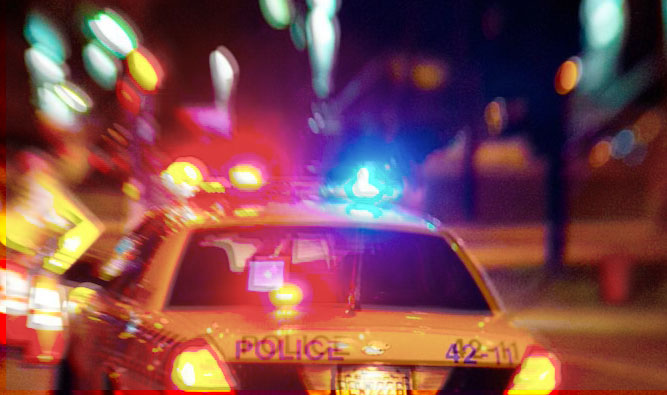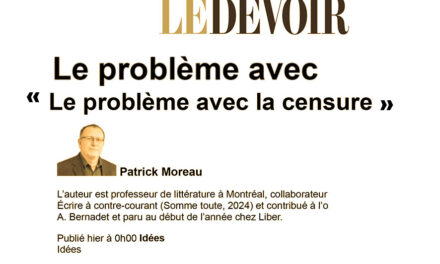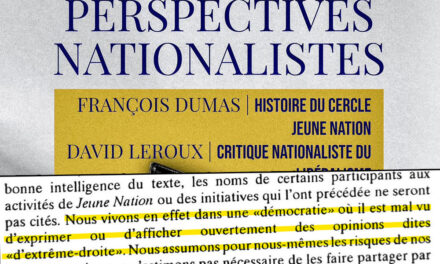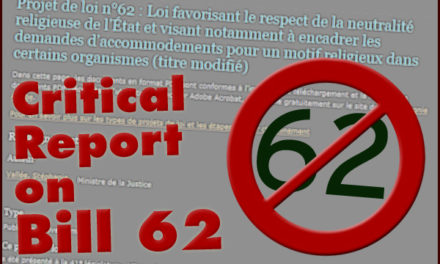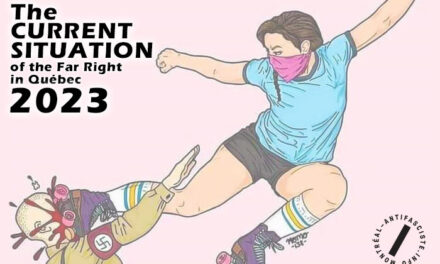As an antifascist and antiracist collective, we feel that it is imperative that we take a position on the current public health measures, particularly the curfew imposed by the Legault government.
The curfew is not a palliative—not in Québec or elsewhere. It has generally been used in times of war and by authoritarian governments, which is to say, by dictatorships. We can legitimately question the necessity and the political implications of such a measure at this point, and we are disturbed by the timid reaction of Québec Solidaire, the only left opposition in the Assemblée Nationale.
Since the beginning of the pandemic, the Legault government’s measures have seemed haphazard and contradictory and generally lacking in transparency. It took the government quite a while to begin promoting masks as a minimum measure for slowing the virus’s spread, which was already proving quite deadly. By this point, recommendations that this measure be adopted were coming from numerous directions. It was necessary that the dwindling stock of masks be replaced —which took far too long— before the government finally publicly recognized the efficacy of this measure. This stumbling about on the part of the government only added fuel to the fires of conspiracy theories. What followed flowed naturally from these errors —the partial economic shutdown, schools reopening too soon, measures that favoured the big box stores at the expense of small businesses, travel and group gatherings authorized then banned in a rapid flip flop over a few days. This erratic behaviour not only caused a lot of stress and uncertainty, it was also interpreted as proof that someone was hiding something, feeding into conspiracy theories.
They are, of course, hiding things. Material shortages, beginning with masks, were minimized and concealed. The steady increase in studies stressing the importance of aerosols (not just droplets) in the transmission of the virus was apparently ignored for quite some time. Even the data upon which the government was basing its decisions was not always available to the public or was not released in a timely way, but only following pressure from journalists. The Legault government tried to persuade the population that being a good citizen required blind obedience. With a blithe combination of paternalism and authoritarianism, the government tried to distract us from the political significance of its decisions, as if everything depended on individual behaviour, as if the current situation is not largely the result of decades of sabotaging the public health care sector (chronic under-investment, poor working conditions, miserable salaries, lack of human resources, a hyper-centralized structure, etc.), and as if the cost of the pandemic is not inequitably distributed.
The decision to impose a curfew serves to obscure unforgivable indifference. While we are focused on the curfew, both schools and factories are reopening, in spite of the fact that recent data shows that these are the two most important loci of transmission in Québec. Regardless of what the government is telling us, we can legitimately doubt that the air quality in schools has magically improved and that the ventilation in classrooms will prove sufficient in the middle of winter.
So, what then, one might ask.
We are not entirely opposed to a curfew, which might prove necessary under certain exceptional circumstance. It seems to have worked to slow the spread of the virus in some countries, for example, France, but, in other countries, like Chili, which has had a curfew in place since March 2020, it seems to have proved ineffective. In short, other measures seem to be more important than a curfew for actually slowing down the spread of the virus. It is a challenging issue that requires more study and not a panic-driven decision made on the spur of the moment. There is no actual justification for a curfew unless it is based on genuine scientific studies that prove its necessity and effectiveness. Above all, it needs to be a measure of last recourse, only adopted when all other measures have been exhausted. This is clearly not the case at this juncture.
So why the curfew? We think that it is primarily a political gesture meant to intimidate people and to create the impression that something is being done. Even if the behaviour of a minority is contributing to the spread of the virus, the government cannot evade its responsibilities and fall back upon authoritarian health care measures as a political principle.
We refuse to accept this cynical subterfuge and reject both the calls for us to denounce our neighbours for violations of the government protocol and the overall authoritarian logic being proposed.
Faced with a pandemic, public health is simply not possible without solidarity!

